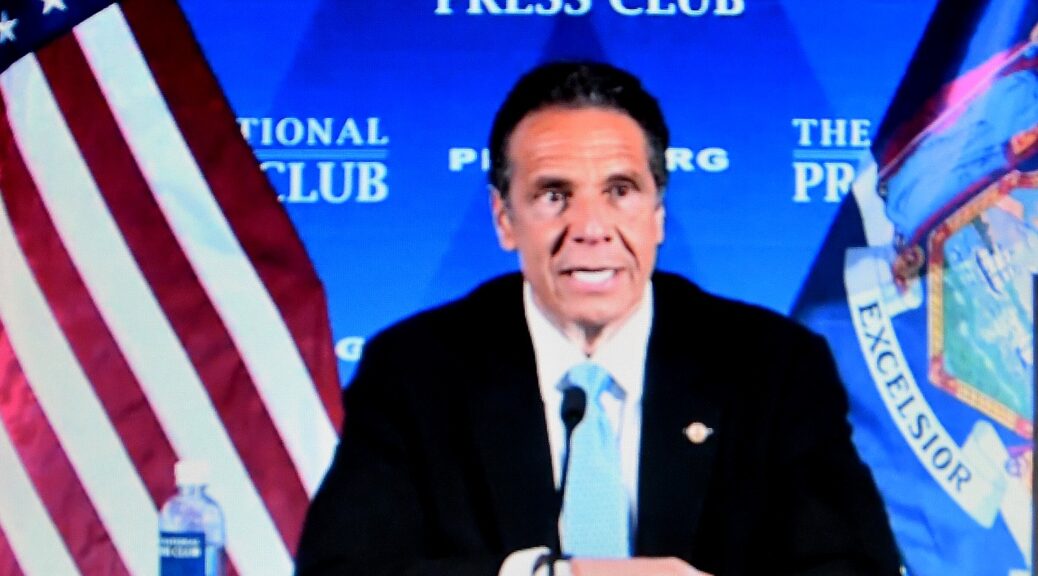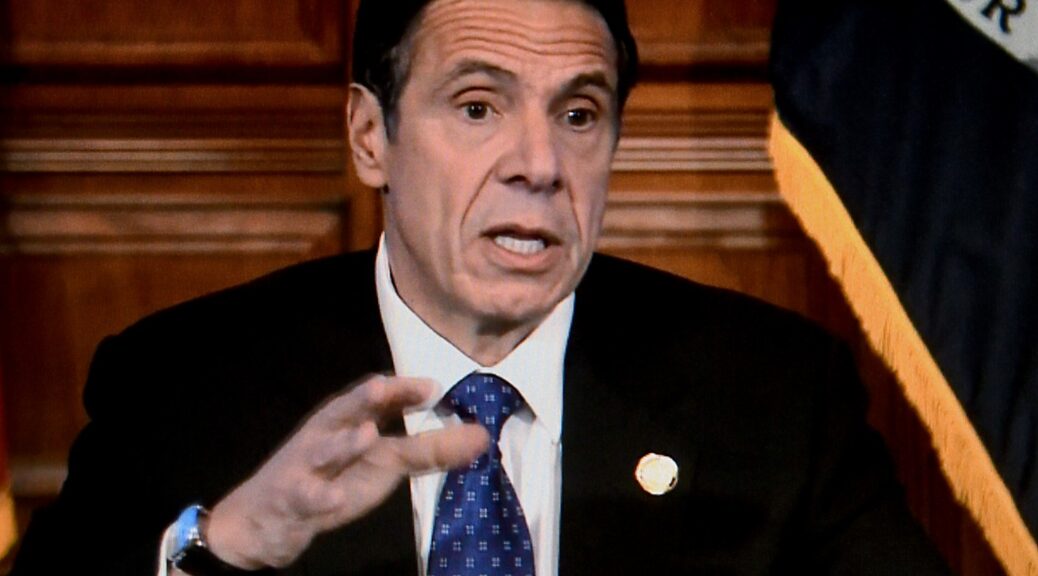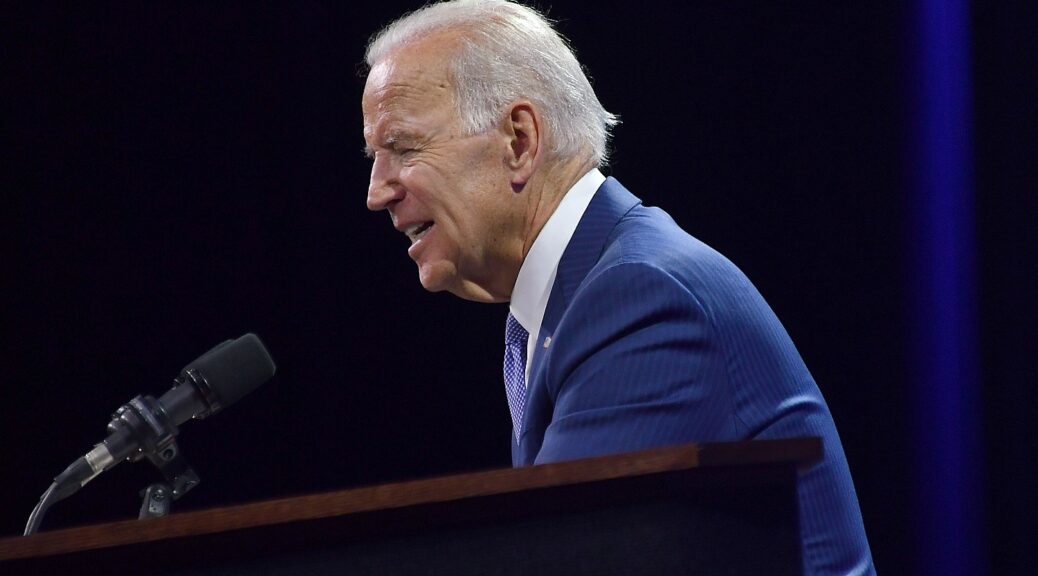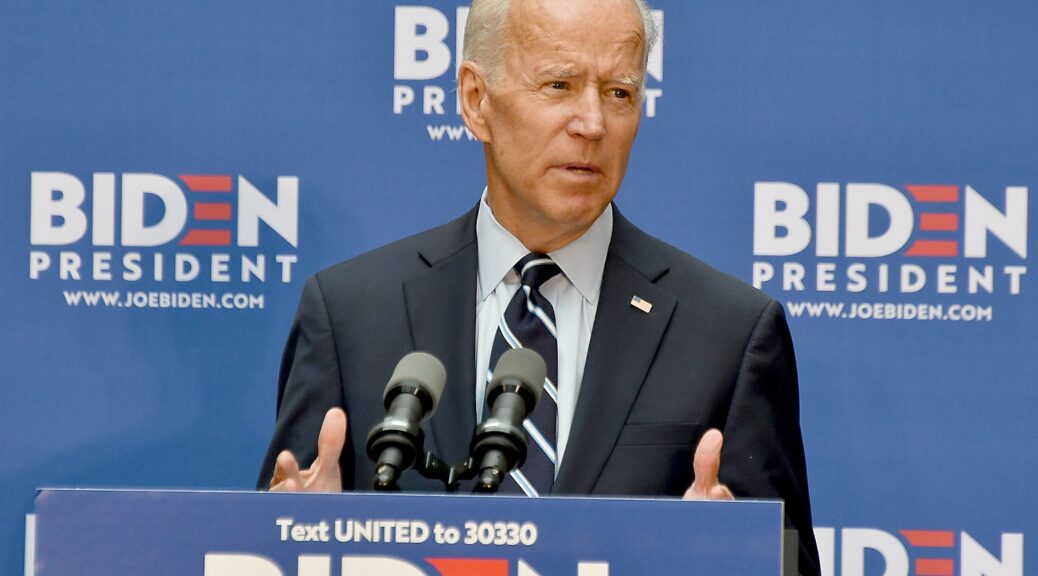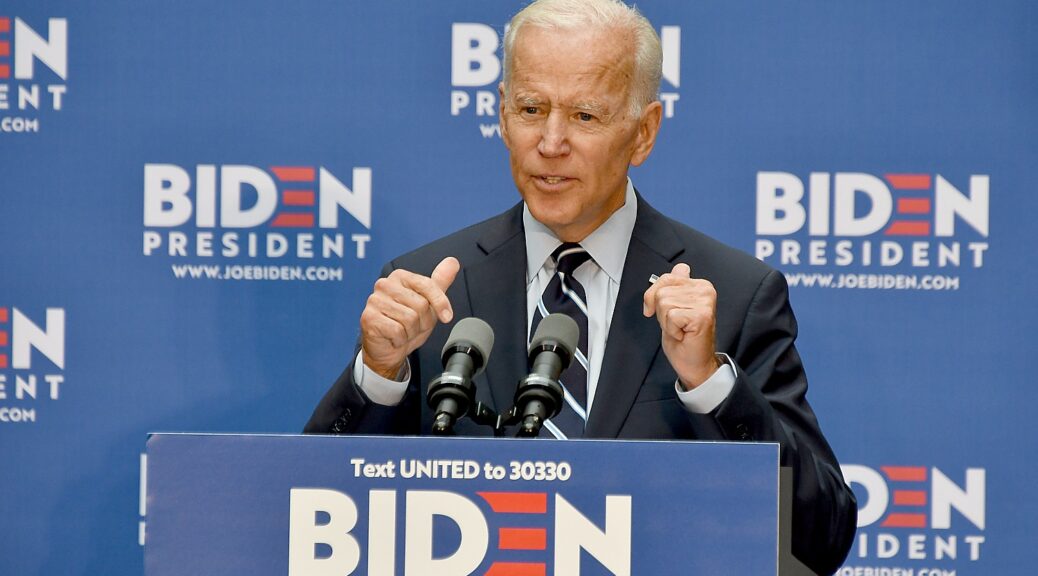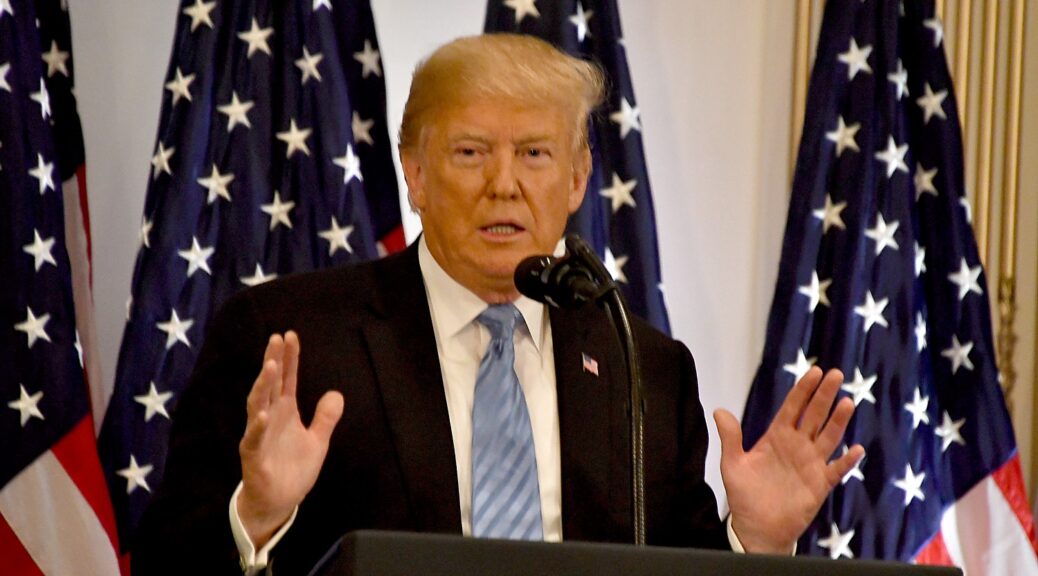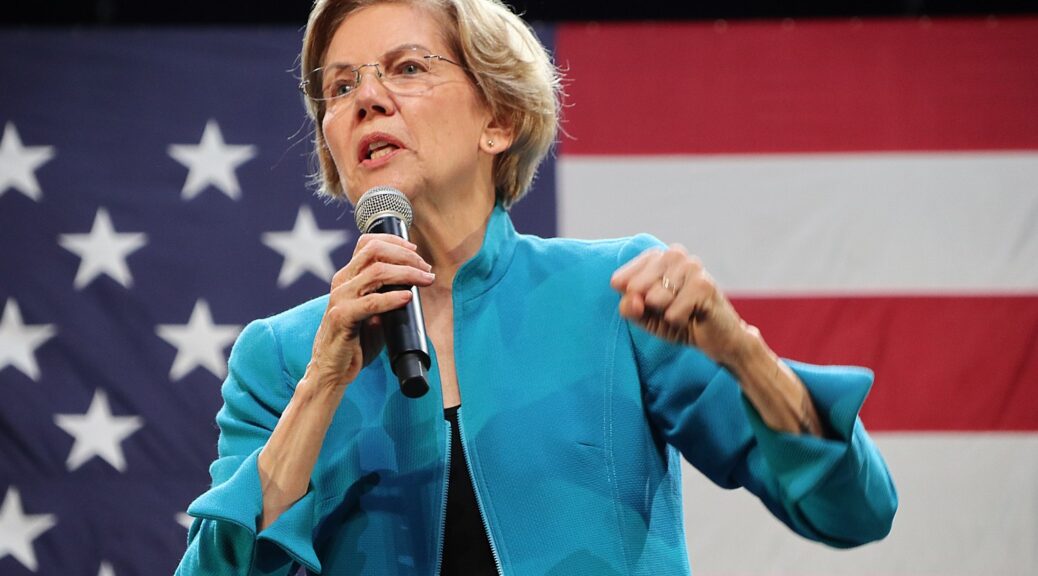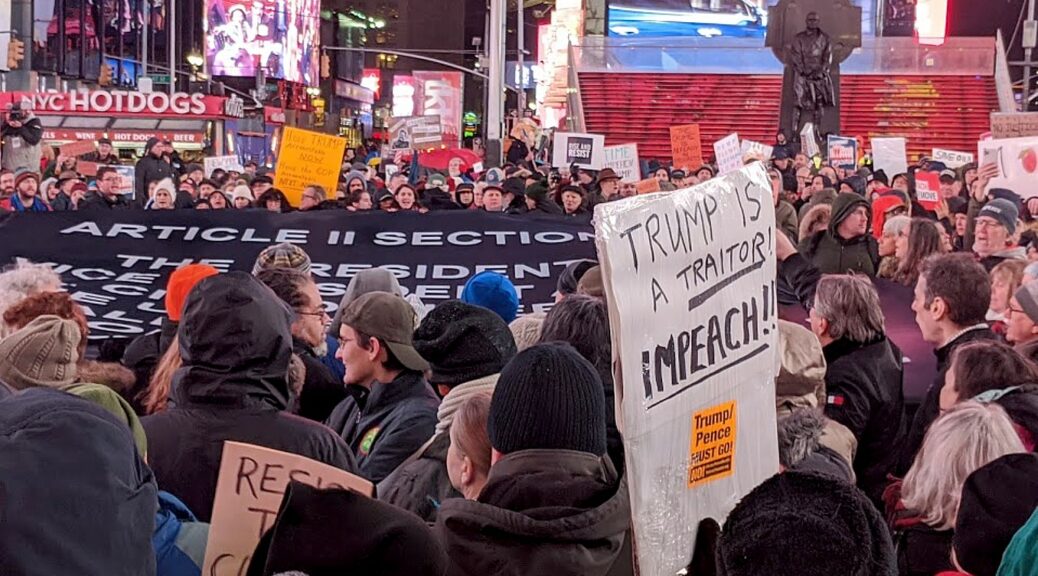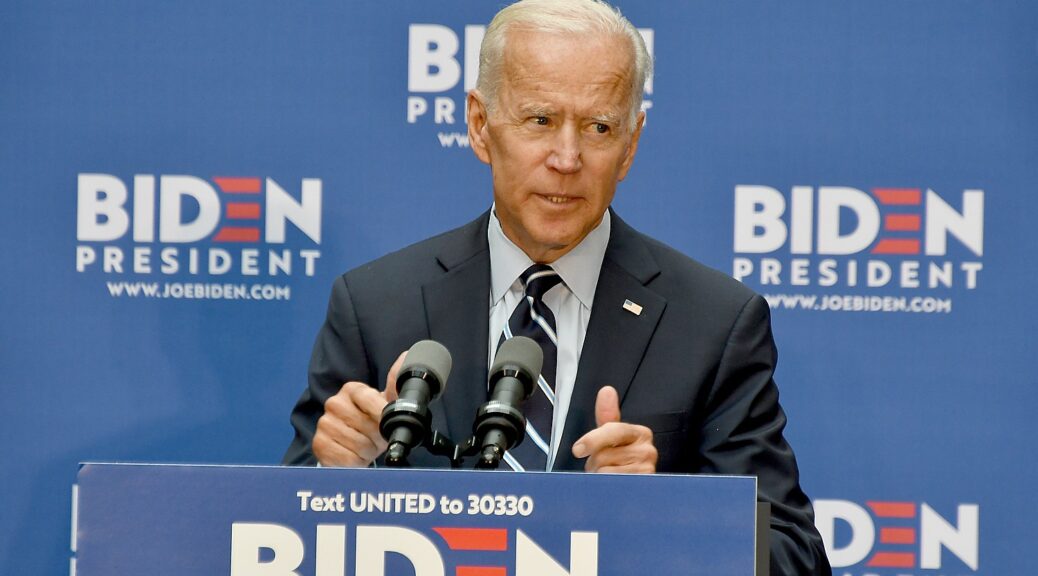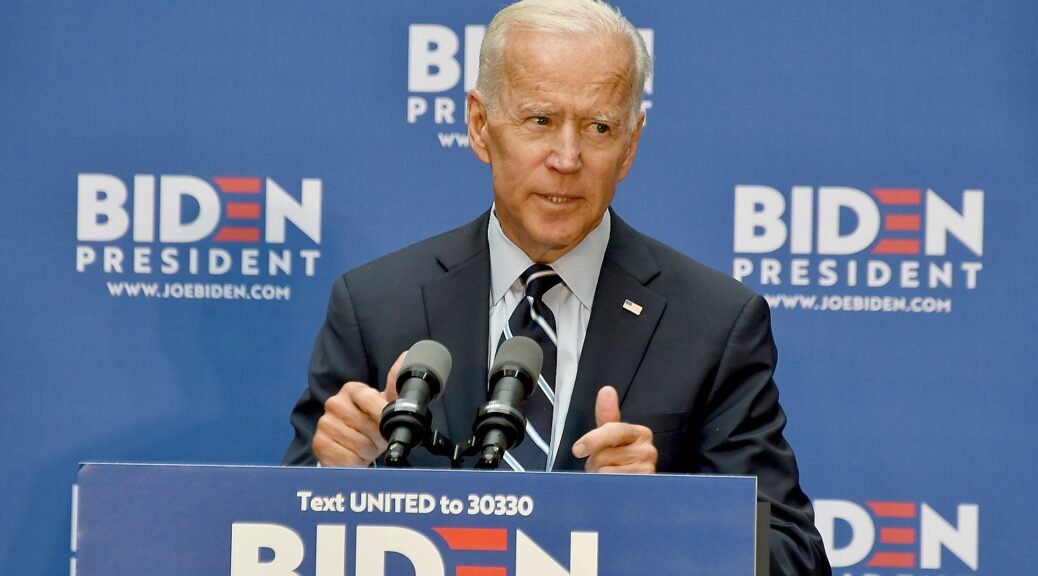
By Karen Rubin, News-Photos-Features.com
New York State Governor Andrew Cuomo, after a meeting with Donald Trump at the White House, chided Washington for politicizing the coronavirus pandemic, and not acting swiftly enough to provide crucial funding to states and localities, especially those – New York, New Jersey, Illinois, Massachusetts, California – where the outbreak of cases and the death toll has been the worst. “This hyper-partisan Washington environment is toxic for this country,” he stated in a press briefing shortly afterward at the National Press Club in Washington. He urged government to “do the right thing.”
Senate Republicans, led by Senate Majority Leader Mitch McConnell of Kentucky, have called such funding a “blue state bail out,” after having allocated billions to friendly industries and funneling millions to connected business interests. He stressed that New York and California, alone, represent one-third of the nation’s Gross Domestic Product, so you don’t have a reenergized economy without them. New York and California are also are the biggest donor states, sending billions of dollars more to taker-states like Kentucky than they get back in federal spending (New York sends $29 billion a year more than it gets back; Kentucky takes $29 billion more than it sends).If the states do not get federal aid, he stresseded, they will be forced to cut spending for hospitals, schools, police and fire – all the services most essential during a public health crisis – and excess thousands of workers, which won’t do the unemployment rate much good. Or, he said, the federal government can use this time as Franklin Roosevelt did during the Great Depression, to finally build the big, bold infrastructure projects that have been put on back-burners for 30 years.
Cuomo noted that the The House of Representatives has already passed its Heroes bill that includes $500 billion for states and $375 billion for locals; Medicaid funding for the most vulnerable; increased SNAP food assistance; 100 percent FEMA federal assistance; funding for testing; and repeals SALT cap to help states most affected by COVID-19, “the politically motivated first double tax in U.S. history” that was implemented by the federal tax law in 2017.
The Governor also renewed his call for Congress to pass the ‘Americans First Law’ to help prevent corporate bailouts following the COVID-19 pandemic. First proposed by the Governor on May 10th, the legislation states that a corporation cannot be eligible to receive government funding if it doesn’t maintain the same number of employees that the corporation had before the COVID-19 pandemic.
Cuomo also urged President Trump to support a real public infrastructure program and to advance infrastructure projects in New York — including the LaGuardia AirTrain, the Cross-Hudson Tunnels, and the Second Avenue Subway expansion — to help supercharge the economy.
He listed a series of projects in New York State that are ready to go – including the LaGuardia AirTrain, the Cross-Hudson Tunnels, and the Second Avenue Subway expansion – that are just awaiting federal approval “to help supercharge the economy.” Significantly, Trump earlier has told agencies to dispense with regulations that are obstacles to speedy development, and during the 2016 campaign, boasted he would be the builder, with a $1 trillion infrastructure spending plan.
Cuomo also renewed his call for ‘Americans First Law’ which would require any company that takes government funding to rehire the same number of employees it had before the COVID-19 pandemic, and not use the pandemic to “right-size” or “downsize” and cut costs to increase profits.
“Washington is now debating their next bill that would aid in the reopening and the recovery. Prior bills have helped businesses, large businesses, small businesses, hotels, airlines, all sorts of business interests,” Cuomo said. “That’s great but you also have states and local governments and state governments do things like fund schools and fund hospitals. Do you really want to cut schools now? Do you really want to cut hospitals now after what we have just gone through when we are talking about a possible second wave, when we are talking about a fall with possible more cases? Do you really think we should starve state governments and cut hospitals? Would that be smart? Do you really want to cut local governments right now? That is cutting police. That is cutting fire. Is now the time to savage essential services and don’t you realize that if do you this, if you cut state and local governments and you cause chaos on the state and local level, how does that help a nation striving to recover economically?
“The Covid states, the states that bore the brunt of the Covid virus are one third of the national GDP. How can you tell one third of the country to go to heck and then think you’re going to see an economic rebound? Also, state governments, state economies, local economies, that is what the national economy is made of. What is the national economy but for a function of the states? There is no nation without the states. They tend to forget that in this town. But it is the obvious fact and we have made this mistake before.
“Again, look at history. If you don’t learn from your mistakes you are going to repeat the mistakes. It is that simple and we have seen in the past what has happened when state and local governments were savaged and how it hurt the national recovery. Wall Street Journal, not exactly a liberal publication, makes the point that on the economy cuts to employment and spending likely to weigh on growth for years. So even if you believe the rhetoric we are about reopening, we are about getting the economy back, great. Then if that is what you believe you would provide funding to the state and local governments.
“The Federal Reserve Chairman Powell, very smart man respected on both sides of the aisle, said we have evidence the global financial crisis in the years afterward where state and local government layoffs and lack of hiring weighed on economic growth. We want to reopen the economy. We want to get this national economy better than ever. Fine. Then act accordingly and act appropriately.
“This hyper-partisan Washington environment is toxic for this country. You have people saying, well don’t want to pass a bill that we continue don’t want to pass a bill that helps Democratic states. It would be a blue state bailout is what some have said. Senator McConnell, stopping blue state bailouts. Senator Scott, we’re supposed to go bail them out? That’s not right. On Fox TV, Laffer, you want us to give our money to Cuomo and New York? Hello, not this week.
“First of all, this is really an ugly, ugly sentiment. It is an un-American response. We’re still the United States of America. Those words meant something. United States of America. First of all, Mr. federal legislator, you’re nothing without the states, and you represent the United States. Not only is it ugly, it is false. It is wholly untrue, what they are saying, 100 percent. And there are facts, if you want to pose the question, which is, I think, divisive at this period of time.
“But if you want to pose the question, what states give money and what states take money? Right? There is a financial equation that is the federal government. And if you want to ask, what states give money to other states and what states take money from other states, that’s a question that Senator McConnell and Senator Scott and Mr. Laffer don’t really want to ask, because the truth, the truth is totally the opposite of what they’re saying. You look at the states that give more money to the federal government than they get back. You know the top, what they call donor state, you know what one state pays in more to the pot than they take out to the federal pot than any other state than the United States? It’s the State of New York. New York pays more every year, $29 billion more, than they take back. You know the second state, New Jersey. Massachusetts, Connecticut, California, every year, they contribute more to the federal pot. You know who takes out more than they put in from that pot? You know whose hand goes in deeper and takes out than they put in? Virginia, Maryland, Kentucky, Alabama, Florida. Those are the facts, those are the numbers.
“The great irony is, the conservatives want to argue against redistribution of wealth. Why should you take money from the rich and give it to the poor? That’s exactly what you are doing. That is exactly what you have done every year. So it’s only redistribution unless you wind up getting more money. Then it’s fine, then it’s not redistribution. Take from the rich, give to the poor, that’s redistribution, yes, unless you’re the poor, Senator McConnell, Senator Scott because you were the ones who have your hand out. You were the ones who are taking more than others. Redistribution, you’re against it, except when the richer states give you more money every year. Then the great hypocrisy, they actually make the redistribution worse when they passed three years ago a provision ending what’s called state and local tax deductibility. That didn’t level the playing field.
“What they did was they took the states that were already paying more money into the federal government, the quote, unquote richer states and they increased the money they were taking from the richer states. They took another $23 billion from California and another $14 billion from New York, New Jersey, Massachusetts, Illinois, Connecticut. The hypocrisy is so insulting because when you start to talk about numbers, there is still facts. People can still add and people can still subtract and they know what they put in and they know what they take out.
“I know it’s Washington, D.C. but the truth actually still matters. Americans are smart and they find out the truth even in the fog and the blather of Washington, DC. My point to our friends in the Congress: Stop abusing New York. Stop abusing New Jersey. Stop abusing Massachusetts and Illinois and Michigan and Pennsylvania. Stop abusing the states who bore the brunt of the Covid virus through no fault of their own. Why did New York have so many cases. It’s nothing about New York. It’s because the virus came from Europe and no one in this nation told us.”
Cuomo hit back on suggestions that the state was at fault for having so many COVID-19 cases – indeed, more than almost any other nation, at 364,965, including 1129 cases added the day before, from 45 counties. Indeed, though Trump had intelligence briefings in January, he downplayed the threat and even later, only looked to China as a source, so the country’s attention was focused on cases in Washington and California.
“We were told the virus is coming from China. It’s coming from China, look to the West. We were looking to the West it came from the East. The virus left China, went to Europe. Three million Europeans come to New York, land in our airports January, February, March and bring the virus. And nobody knew. It was not New York’s job. We don’t do international, global health. It didn’t come from China. It came from Europe and we bore the brunt of it. Now, you want to hold that against us because we bore the brunt of a national mistake? And because we had more people die? We lost more lives and you want to now double the insult and the injury by saying, ‘Well, why should we help those states? Those states had more Covid deaths.’ That’s why you’re supposed to help those states because they did have more Covid deaths and this is the United States and when one state has a problem, the other states help.
“I was in the federal government for eight years. When Los Angeles had earthquakes, we helped. When the Midwest had the Red River floods, we helped. When Florida had Hurricane Andrew, we helped. When Texas had floods, we helped. When Louisiana had Hurricane Katrina, we helped. We didn’t say “well, that is Louisiana’s fault. They had the hurricane. Well, that is Texas’s fault, they had the floods.” It was nobody’s fault. And we were there to help because that is who we are and that is what we believe. What happened to that American spirit? What happened to that concept of mutuality?
“You know there still a simple premise that you can’t find in a book, and Washington hasn’t written regulations for, called doing the right thing. There is still a right thing in life. The right thing you feel inside you. The right thing is calibration of your principle and your belief and your soul and your heart and your spirit. And we do the right thing in this country, not because a law says do the right thing, but because we believe in doing the right thing. As individuals, as people, we believe in doing right by each other, by living your life by a code where you believe you are living it in an honorable way, acting on principle, and you are doing the right thing.
“Why can’t the government? Why can’t the Congress reflect the right thing principle that Americans live their life by? Pass a piece of legislation that is honorable and decent and does the right thing for all Americans. Why is that so hard? And if you want to talk about reopening the economy, then do it in a productive way. People think this economy is just going to bounce back. I don’t think it is going to bounce back. I think it will bounce back for some, and I think there will be collateral damage of others. We already know that tens of thousands of small businesses closed and probably won’t come back. We already know the large corporations are going to lay off thousands and thousands of workers, and they are going to use this pandemic as an excuse to get lean, to restructure, and they will boost their profits by reducing their payroll.
“We know it. We have been there before. We saw this in the 2008 Mortgage Crisis where the government bailed them out, the big banks that created the problem, and they used the money to pay themselves bonuses and they laid off their workers. They will do is same thing again that. That is why I propose the Americans First legislation that said a corporation can’t get a dime of government bailout unless they rehire the same number of workers they had pre-pandemic as post. Don’t take a gift from the taxpayer and then lay off Americans who are going to file for unemployment insurance paid for by the taxpayers. Don’t do that again.
“And if you want to be smart, we know that there is work to do in this nation. We have known it for years. You can fill a library with the number of books on the infrastructure and the decay of our infrastructure and how many roads and bridges have to be repaired, how this nation is grossly outpaced by nations across the world in terms of infrastructure, airports and development. Now is the time to stimulate the economy by doing that construction and doing that growth. You want to supercharge the reopening? That’s how do you it. This nation was smart enough to do it before. We did it in the midst of the great depression. We created 8 million jobs. We built an infrastructure that we’re still living on today. We’re still living on the infrastructure built by our grandparents, not even our parents. What are we going to leave our children? And now is the time to do it.
“We have major infrastructure projects in New York that are ready to go, that are desperately needed, that were desperately needed 30 years ago. Build them now. Supercharge the reopening. Grow the economy. That’s what we would do if we were smart. You’re not going to have a supercharged economy. You’re not going to see this nation get up and start running again, unless we do it together. That’s states working with other states. That’s a federal government that stands up and puts everything else aside.
“They were elected to provide good government. Nobody elected anyone to engage in partisan politics. There was a time when as a nation we were smart enough to say, “You want to play politics? That’s what a campaign is for.” Run your campaign against your opponent. Say all sorts of crazy things. That’s crazy campaign time. But when government starts, stop the politics, and do what’s right and smart. Don’t play your politics at the expense of the citizens you represent. There is no good government concept anymore. It’s politics 365 days a year. From the moment they’re elected to the moment they run again, it’s all politics. And that is poison. We have to get to a point, if only for a moment, if only for a moment, if only for a moment in response to a national crisis where we say it’s not red and blue. It’s red, white, and blue. It’s the United States and we’re going to act that way.
“In New York we say that by saying New York tough, but it’s America tough. Which is smart, and united, and disciplined, and loving, and loving.”
Cuomo said that the ninth of 10 regions, Long Island, began reopening today, joining Mid-Hudson Valley which opened yesterday, the Capital Region, Western New York, Central New York, North Country, Finger Lakes, Southern Tier and Mohawk Valley Regions, which all have met the seven metrics required for Phase One of a multi-phase process. Each of the regions has to have a monitoring commission in place to make sure reopening does not trigger new outbreaks, and that any upticks are addressed.
New York City still has more metrics to complete before it can begin its formal reopening, though the New York Stock Exchange did reopen yesterday.
Governor Cuomo: “States are responsible for the enforcement of all the procedures around reopening but at the same time the federal government has a role to play and the federal government has to do its part as we work our way through this crisis. There cannot be at national recovery if the state and local governments are not funded.”
See also: Politicizing a Pandemic
________________________
© 2020 News & Photo Features Syndicate, a division of Workstyles, Inc. All rights reserved. For editorial feature and photo information, go to www.news-photos-features.com, email editor@news-photos-features.com. Blogging at www.dailykos.com/blogs/NewsPhotosFeatures. ‘Like’ us on facebook.com/NewsPhotoFeatures, Tweet @KarenBRubin

